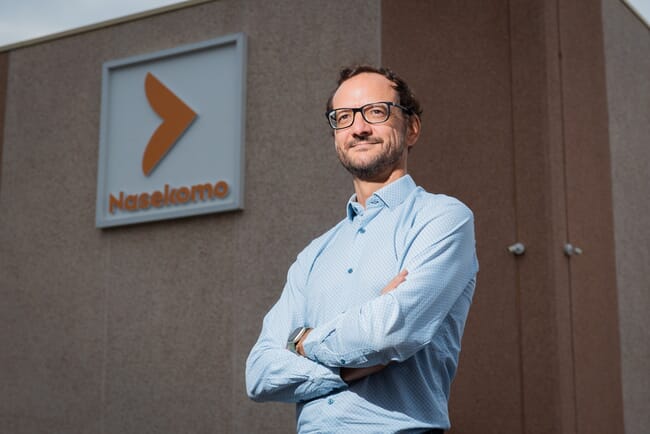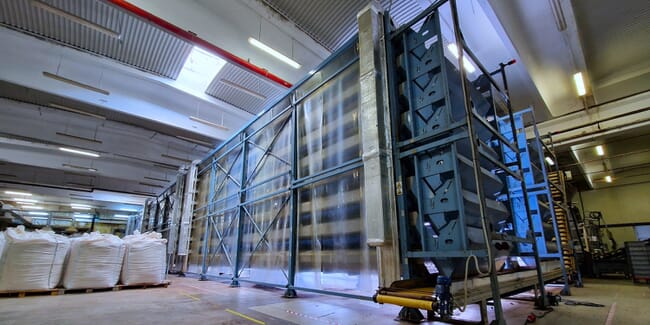
© Nasekomo
According to the Bulgaria-based startup, its automated insect rearing platform achieved 25 percent FCR – a third higher than that of traditional crate-based solutions – under commercial conditions.
“It confirms the viability of a zero-crate, fully automated approach to rearing black soldier fly (BSF) larvae at scale. The milestone reflects five years of continuous development and optimization of the platform,” the company stated.
“This is a key moment for our industry. The result shows how insect farming can truly scale and compete. At the current improvement rates, we aim at operating at this efficiency level or more in the short term, from 2026 onwards. Furthermore, our process has much lower mortality rates than in crate-based systems,” said Marc Bolard, co-founder and CEO of Nasekomo.
The startup’s Automated Insect Rearing Beds and Bots platform is based on deep-substrate vertical farming, and uses robotics, AI-powered analyses and full environmental control — all without the use of crates.
“Our system allows us to monitor in real time the entire volume of the rearing substrate with up to 20 cm height. We collect and act on data throughout the process, something crates simply can’t offer,” explained Kamen Vasilev, head of bioconversion and processing at Nasekomo, adding: "The platform allows us interventions at any moment during the process".

© Nasekomo
The heart of the platform is a ploughing robot equipped with integrated sensors, capable of adjusting humidity and temperature at every stage of larval growth. Designed for adaptability, the robot’s abilities including mixing, watering, refeeding, cooling, heating and real-time monitoring, to optimise growing conditions.
In fact, the record FCR was achieved with three times less ventilation capacity than traditional systems, thanks to a highly efficient heat exchange system built into the automated rearing platform.
As Bolard puts it: “The larvae self-regulate their environment at almost no utility cost thanks to synergies between growing batches, ventilation, robot operations and materials and structural designs.”
Each platform unit spans up to 81 metres in length and 12 floors in height, with a processing capacity of around 16,000 tonnes of feed per year, potentially yielding up to 4,000 tonnes of larvae annually at the 25 percent FCR rate.
“We’ve taken millions of baby steps to get here — and we’re just getting started. The platform is future-proof, and we’ll keep developing it thanks to our partnership with Siemens, which brings industrial-grade precision and digital intelligence into insect farming,” added Bolard.


